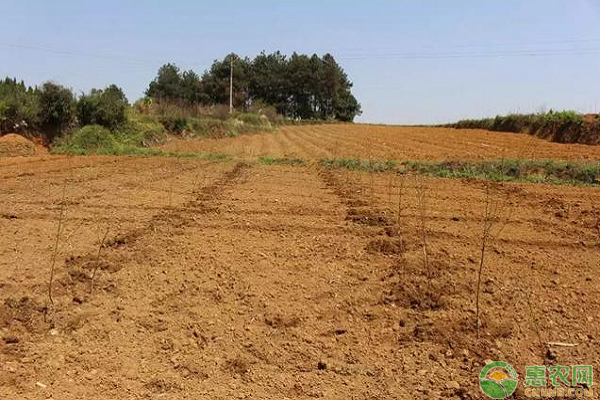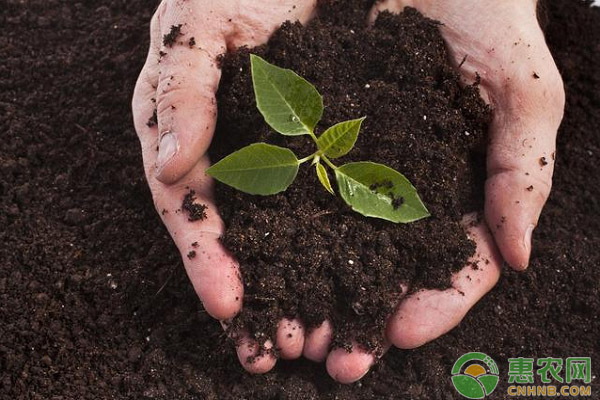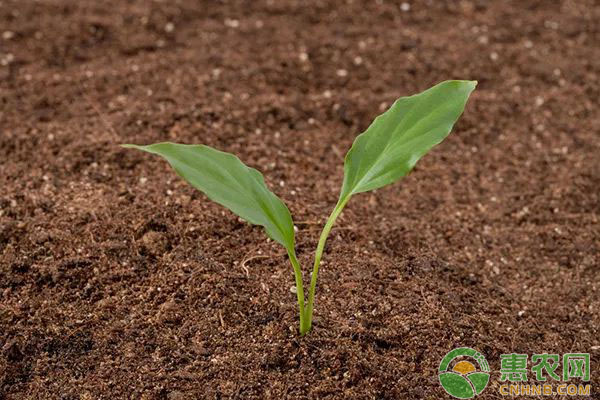Recently, some farmers have responded that their land is “not long-term†and “not plantedâ€. What is going on? In fact, this is a series of problems caused by soil acidification.
Soil acidification can be said to be a difficult problem in agricultural planting in recent years, especially in vegetable greenhouses. After acidification of the soil, crop growth is inhibited, root system is poorly developed, absorption is difficult, and the growth is weakened. There may even be a phenomenon in which the seedlings are not long and the planting is not completed, which makes the farmers' friends very headache. Today, let me talk about the things about soil acidification: 1 What is soil acidification? 2 How is soil acidification caused? 3 What are the hazards of soil acidification? 4 How to prevent and control soil acidification?

1. What is soil acidification?
The so-called soil acidification, in fact, a manifestation of land degradation, simply because of the natural environment and human factors, caused by the decline of soil pH, soil acidity (strongly acidic or extremely acidic) The natural acidification process is very slow, but the acidification caused by human factors is very fast.
Second, how is soil acidification caused?
The acidification of the soil is simply caused by the large loss of basic base ions such as potassium, calcium and magnesium in the soil. In terms of plant physiology, it can be divided into three aspects:
On the one hand, all kinds of nitrogen fertilizer in the soil will be converted into nitrate in the soil. When the nitrate is lost, a large amount of calcium and magnesium ions in the soil will be taken away, which will lead to acidification of the soil, so excessive fertilization, especially excessive use. Nitrogen fertilizer is the main cause of soil acidification;
On the other hand, large amount of precipitation and concentrated, large water flooding irrigation will also cause the base ions such as calcium, magnesium and potassium in the soil to be washed away, and the residual hydrogen ions and sulfate ions will combine, resulting in Soil acidification, so in the process of agricultural planting management, unreasonable watering, especially excessive watering is also one of the main causes of soil acidification;
On the other hand, because the crops absorb and consume a large amount of nutrients from the soil during the growth and development process, including base ions such as calcium, magnesium and potassium, these base ions are completely taken out after the crop is received. In the field, if the field cannot be replenished in time or insufficiently supplemented, it will also lead to acidification of the soil. Therefore, unreasonable fertilization or insufficient supplementation of effective nutrients is also an important cause of soil acidification.
According to statistics, the problem of acidification of farmland soil in China is very serious, and it shows a more and more serious trend. The main reason is that 70% of soil acidification of grain fields (rice, corn, wheat) is caused by long-term excessive use of nitrogen fertilizer. 90% of the soil acidification in the fruit and vegetable fields is caused by excessive nitrogen fertilizer, and more than 85% of the vegetable greenhouses have acidification in the soil.

3. What are the hazards of soil acidification?
From the perspective of agricultural planting, most of the crops grow best in the micro-acid to micro-alkali soil environment. The roots of the crops have the highest absorption and utilization of nutrients in the neutral and acidic soils. When the soil is too acidic, The absorption and utilization of soil nutrients in the roots of crops will be reduced, and it is easy to appear that fertilization is more, but the crops are still short of fat.
On the one hand, soil acidification will lead to serious soil compaction problems, resulting in the destruction of normal soil aggregate structure and severe inhibition of crop root development. Acidified soil will cause crop root extension, rooting and development difficulties, and the respiratory and absorption functions will be greatly reduced, causing problems such as underdeveloped roots, insufficient nutrient absorption, slow seedling growth, weak growth, low crop yield, and poor fruit quality. It is also easy to make old crops and old trees appear in all kinds of crops.
On the other hand, soil acidification will increase planting inputs and crop diseases. After acidification of the soil, it will greatly inhibit the growth of the crop, make the crop weak, and the disease resistance and stress resistance will be poor, and it will be easily infected by pests and diseases, especially the soil-borne diseases and root nematodes, which are most acidic. For farmers, crops often have to be ill, and they have to increase the amount of pesticides applied, which not only increases planting inputs, but also reduces the quality of agricultural products.
On the other hand, acidified soil can have a toxic effect on crops. After the acidification of the soil, the chemical and biological properties of the whole plot will change, which will not only inhibit or reduce the breeding activities of various beneficial organisms in the soil (instead, the number of harmful bacteria will increase simultaneously), Many heavy metal ions are activated in the soil. These large amounts of activated heavy metal ions can cause toxic effects on the roots of crops, and can also cause safety problems such as heavy metal residues in agricultural products.
4. How should acidified soil be prevented and improved?
1. Take soil testing and formula fertilization. On the other hand, the soil testing formula fertilization is based on the soil nutrient structure testing and testing, scientific matching fertilizer type, ratio and application amount, can achieve "lack of sputum, accurate supply, no waste", can maintain a large number of elements The nutrient structure of the medium and trace elements in the soil is balanced.
2. Use chemicals to adjust the pH. According to the acidity of the soil, the amount of quicklime, gypsum, alkali residue, calcium chloride, calcium humate, soil improver and the like can be used to adjust the pH of the soil, so that the pH value of the peracid of the soil is lowered.
3. Add decomposed organic fertilizer or biological fertilizer or green manure. Fully decomposed organic fertilizer and biological bacterial fertilizer can not only improve the soil dredging and permeability, promote the formation of soil aggregate structure, enhance soil activity, and promote the breeding activities beneficial to a variety of beneficial biological fungi, but also rich in Very rich in medium and trace elements, can fully supplement the soil nutrients, and improve soil fertility.

4. Change the bad habit of fertilizing and watering. This point is mainly to rationally control the amount of nitrogen fertilizer application, no partial application, no heavy nitrogen fertilizer application, in the watering management, conditional use of dropper, sprinkler irrigation, unconditional can be based on soil drought and crop growth period demand for water, Reasonable watering, and increase the number of watering for acid, must avoid flooding watering.
5. Planting salt-tolerant crops. For soils that have been acidified, some acid-tolerant crops such as peanuts, potatoes, watermelons, canola, taro, celery, and berries can be grown.
Guangzhou Zhongzhinan Supply Chain Co.,Ltd. , https://www.zhongzhinanlighting.com